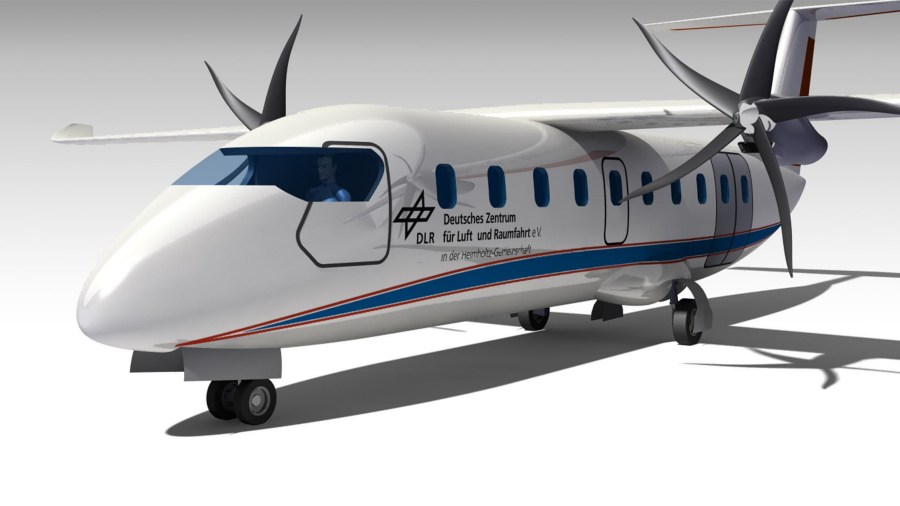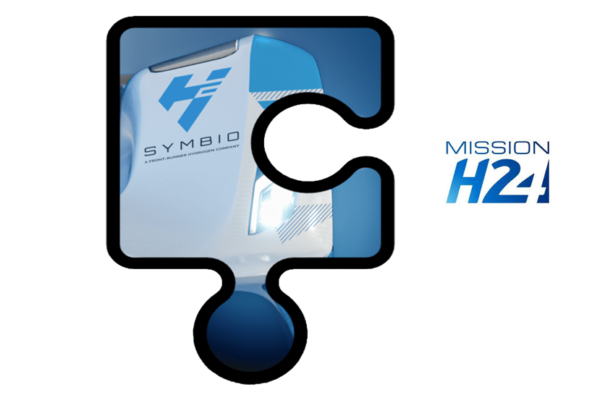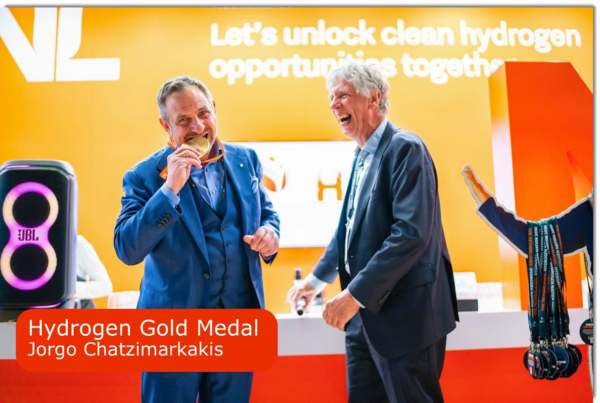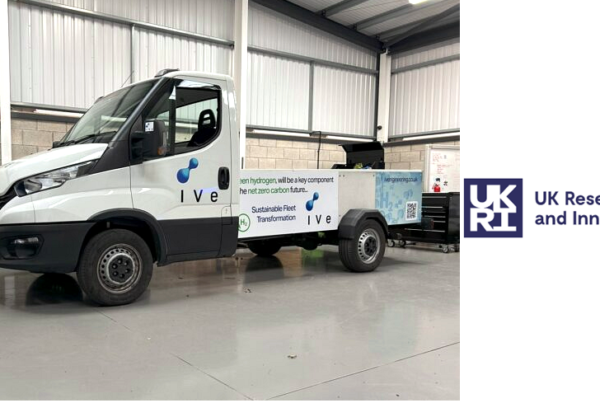
- An important step towards climate-neutral passenger aircraft.
- Promising hydrogen fuel cell system in the megawatt range is being developed and is to be demonstrated in flight by 2025.
- 10 partners from science and industry are thus jointly promoting flying with hydrogen.
- The Dornier 328 is to become a demonstration aircraft for climate-neutral flights in EASA’s large aircraft class (“CS25”).
- Participating DLR spin-off H2FLY strengthens DLR’s strategic position in the field of technology transfer.
- Focus: aviation, zero-emission flying
Tomorrow’s climate-neutral aviation requires CO 2 -free propulsion technologies. Hydrogen-electric drives with hydrogen fuel cell technology offer a promising option for regional aircraft. This is now experiencing strong momentum from the “328H2-FC” project. Under the direction of the German Aerospace Center (DLR) in cooperation with H2FLY, Deutsche Aircraft, Diehl Aviation and six other partners, a fuel cell system with a capacity of one and a half megawatts for use in flight is being developed for the first time in the project. The project opens up a technological perspective for future regional aircraft in the 40-seater class. At the beginning of 2022 this was handed overFederal Ministry for Economic Affairs and Climate Protection (BMWK)the notification of grant for funding. The BMWK is funding the realization of the first megawatt hydrogen fuel cell system for aviation with a funding volume of around 30 million euros.
As part of the partnership, a Dornier 328 aircraft is to be converted for hydrogen-electric passenger flight for the first time. The drive train has to be electrified and a fuel cell system including cooling and a liquid hydrogen tank have to be integrated. The “328H2-FC” project paves the way for demonstrating the potential of hydrogen for climate-neutral air travel. The unique hybrid-electrically powered demonstration aircraft for EASA’s large aircraft class (“CS25”) is scheduled to take off for the first time in 2025. Prior to this, tests of the fuel cell system to be developed are planned on a new ground test bench at DLR.
Prof. André Thess, Head of theDLR Institute for Technical Thermodynamicssays: “With a fuel cell that generates more than one megawatt of power, we are opening the door to climate-neutral passenger aviation without CO 2 emissions. We will test the new technology extensively at the DLR site in Stuttgart before we start with aircraft integration and initial flight tests. By the end of the decade, such passenger aircraft could be in commercial service.”
Technology development and transfer
The DLR is responsible for the coordination of the network in the project. In addition, DLR is responsible for the fuel cell test stand, the tank system, its testing and the interface between fuel cells and tank system as well as the fuel cell housing with integrated sensors, safety components and their cooling. For testing the powertrain, theBALIS research infrastructureused. In addition, DLR analyzes emission data and examines the overall climate impact of a possible 328H2-FC fleet, with the focus on contrail formation and its impact. In addition, the project brings in the DLR spin-off H2FLY as a partner, thereby strengthening DLR’s strategic position in the field of technology transfer.
dr Anna Christmann MdB, Federal Government Coordinator for Aerospace: “The company H2FLY is an important building block for the future strategy of emission-free aviation. With the project funded by the BMWK, we have the unique opportunity to further expand the technological lead in flying with hydrogen here in Germany. With our funding, we make it possible to master the technical challenges of using hydrogen in aviation through research.”
Prof. Dr. Josef Kallo, co-founder and CEO of H2FLY: “With this funding, H2FLY will expand its lead as a global technology leader in the field of hydrogen-electric drives. Flying with hydrogen without CO 2 emissions is becoming reality.” When cruising, the use of the hydrogen fuel cell energy system enables operation without CO 2 emissions, which means that a large part of the flight route can be covered in a completely climate-neutral manner. For the energy-intensive start, a gas turbine will initially provide additional thrust as part of the testing in the hybrid-electric concept.
Martin Nüßeler, CTO of Deutsche Aircraft: “Our Dornier 328 is the ideal platform for demonstrating the new fuel cell technology. In this way, we can bring technology into real environmental conditions and accelerate our path to climate-neutral aviation.”
Benno Petersen, Head of Innovation and R&T at Diehl Aerospace: “Our company is participating in the 328H2-FC project with extensive research packages. We are thus impressively documenting our interest in this forward-looking drive technology and underlining the important role that the supplier industry plays in the development of such innovative complete systems”.
The project thrives on the cooperation in a strong partner network of DLR, H2FLY, Deutsche Aircraft and Diehl Aviation (incl. Diehl Aerospace). Other project partners are AKG Verwaltungsgesellschaft mbH, Bauhaus Luftfahrt eV, GE Aviation, HS Elektronik GmbH, Industrieanlagen-Betriebsgesellschaft mbH and Premium Aerotec GmbH. The grants from the Federal Ministry of Economics and Climate Protection for the 328H2-FC project are part of the aviation research program (LuFo VI-2). Network leader is the DLR. The project builds on the previous projects 328eHY-LAB and 328eHY-TECH (LuFo VI-1) led by Deutsche Aircraft.
DLR – research for zero-emission flying with fuel cells
The German Aerospace Center (DLR) is pursuing the vision of emission-free aviation. Alternative, climate-friendly drive systems will make a significant contribution to this in the future. Electric drives in combination with fuel cells and hydrogen offer promising prospects for regional aircraft. Specifically, DLR is researching two approaches in two different size classes with partners from the aviation industry. In the D328H2-FC project, a hybrid electric system is to be developed and tested for aircraft with up to 40 passengers, consisting of a hydrogen fuel cell with a performance class of over one megawatt and a gas turbine. In the Do-228FFC project, a 600KW drive combined with a hydrogen fuel cell is being developed and tested for flights with up to 18 passengers.
Read the most up to date Fuel Cell and Hydrogen Industry news at FuelCellsWorks




